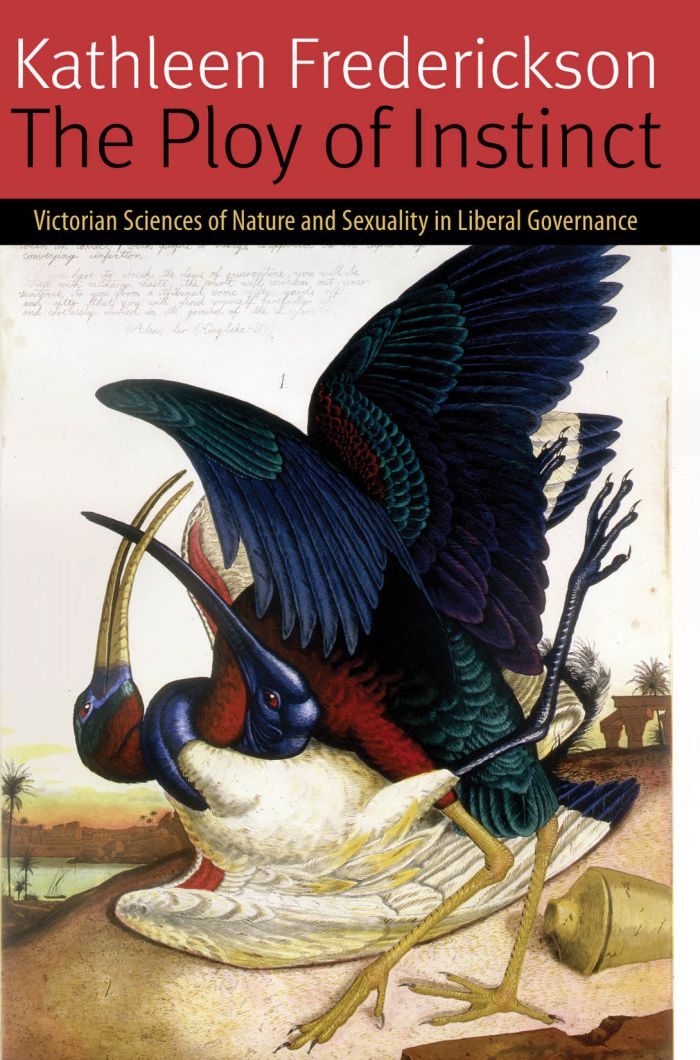The Ploy of Instinct
Victorian Sciences of Nature and Sexuality in Liberal Governance

This book can be opened with

It is paradoxical that instinct became a central term for late Victorian sexual sciences as they were elaborated in the medicalized spaces of confession and introspection, given that instinct had long been defined in its opposition to self-conscious thought. The Ploy of Instinct ties this paradox to instinct’s deployment in conceptualizing governmentality.
Instinct’s domain, Frederickson argues, extended well beyond the women, workers, and “savages” to whom it was so often ascribed. The concept of instinct helped to gloss over contradictions in British liberal ideology made palpable as turn-of-the-century writers grappled with the legacy of Enlightenment humanism. For elite European men, instinct became both an agent of “progress” and a force that, in contrast to desire, offered a plenitude in answer to the alienation of self-consciousness.
This shift in instinct’s appeal to privileged European men modified the governmentality of empire, labor, and gender. The book traces these changes through parliamentary papers, pornographic fiction, accounts of Aboriginal Australians, suffragette memoirs, and scientific texts in evolutionary theory, sexology, and early psychoanalysis.
The rational actor has long been considered the central figure of liberal subjectivity. In this intriguing book, which brings together queer theory and Victorian science studies, Kathleen Frederickson shows how nineteenth-century thinkers adopted instinct, rather than reason, as a desirable quality for the arts of governance. Counter-intuitive, surprising, and utterly convincing, The Ploy of Instinct is a refreshing addition to the intellectual history of liberalism.
“A smart, rigorously researched and fascinating book that will be a rich contribution to Victorian Studies, sexuality and gender studies, and history of science scholarship.”

